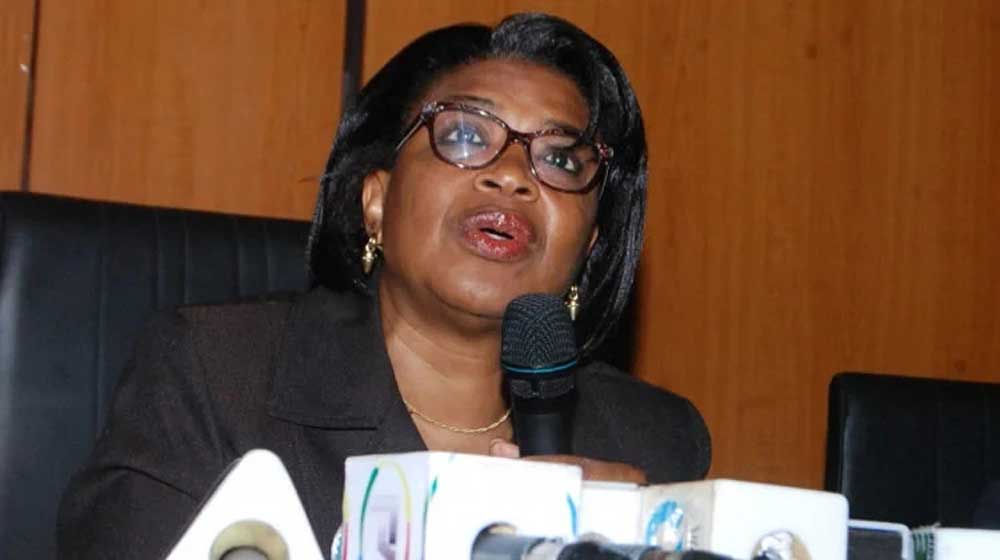‘Investors Will Go To Ghana If We Fail To Fix Infrastructure’- DMO Seeks Subscribers For N150bn Sukuk Bond
The Director-General of the Debt Management Office, Patience Oniha, has said that more investors will dump Nigeria for Ghana if the country’s infrastructure is not fixed.
The DMO boss made the disclosure on Thursday at the DMO AI Ijarah (Lease) Sukuk issuance meeting which was monitored by THE WHISTLER.
Advertisement
Nigeria’s Sovereign Sukuk made its debut in 2017 which is an investment certificate that represents the ownership interest of the holder in an asset or pool of assets that is utilised to strategically fund infrastructure.
Since its first issue, N742.55bn has been raised and deployed to the rehabilitation and construction of 4,000 kilometre of roads and bridges across the country.
The DMO hopes to raise its sixth Sovereign SUKUK for N150bn of 10 years at a rental rate of 15.75 per cent with the minimum subscription is N10,000 at N1,000 per unit and in the multipoles of N1,000 thereafter.
The transaction adviser for the 2023 SUKUK is Buraq Capital Limited; the issuing houses are Greenwich Marchant Bank, Stanbic IBTC Capital and Vevita Capital.
Advertisement
Oniha said, “The fund will be used to finance rehabilitation and construction of road projects and bridges identified by the implementing agencies of the Federal Government.
“To attract capital, you have to look at your infrastructure. I think for my colleagues, friends from the NGX and number of private sector holders, you know that businesses started moving to Accra here, for what reason? Infrastructure, right? So, we have to do something. They won’t come if the environment is not conducive.”
Nigeria’s infrastructural deficit is about 30 per cent of its GDP and falls below the international benchmark set by the World Bank, according to the DMO DG.
Nigeria’s population growth rate is projected at 2.5 per cent yearly and expected to hit 400 million by 2025, raising the fears that the current infrastructure in the country will be overwhelmed.
Nigeria’s infrastructure before the introduction of the Sovereign SUKUK was funded through the annual budget which was inadequate to meet the country’s infrastructure gap.
Advertisement
The DMO explained that the deficits in infrastructure are a major reason why Nigerians should invest in the N150bn SUKUK.
Oniha said the government needs funds to fix infrastructures and the DMO is ready to accommodate more funds in the case where the N150bn is oversubscribed.
The DG said, “I think if you go through the SUKUK issued in the past with the exception of the first one, we have a track record of taking what is obtainable. So, if the N150bn is small, let me put it this way, we are expecting an oversubscription.
“The government has projects and the N150bn doesn’t take care of all the projects that FCT and the Ministry of Works and Housing has. So, there are projects waiting already. If we raise more than N150bn, we will take it for those projects.”
Meanwhile, on the issue of tolling the roads, the DMO DG explained that it is within the discretion of the Federal government to decide which road should be tolled.
Oniha said, “On tolling, yes, ideally and that is what DMO would have loved to see to use SUKUK to fund a project and the project generates revenue whether by tolls or fees or whatever you call it and use it to repay the SUKUK.
Advertisement
“The macro issue here is that it is the government that determines what should be tolled and what should not be tolled.
“I am aware that the Federal Ministry of Works and Housing sometime pushed through the Federal Executive Council a National Tolling Policy which roads are eligible for tolling. The past administration had something like that which I know the public kicked against.
“The legislators also kicked against it because they always try to protect us. We would like projects to be self-financing. That way debt service will not be a burden.”
The N150bn will be listed on the Nigerian Exchange Limited and FDMQ Securities Exchange Limited, according to the transaction structure and terms.



